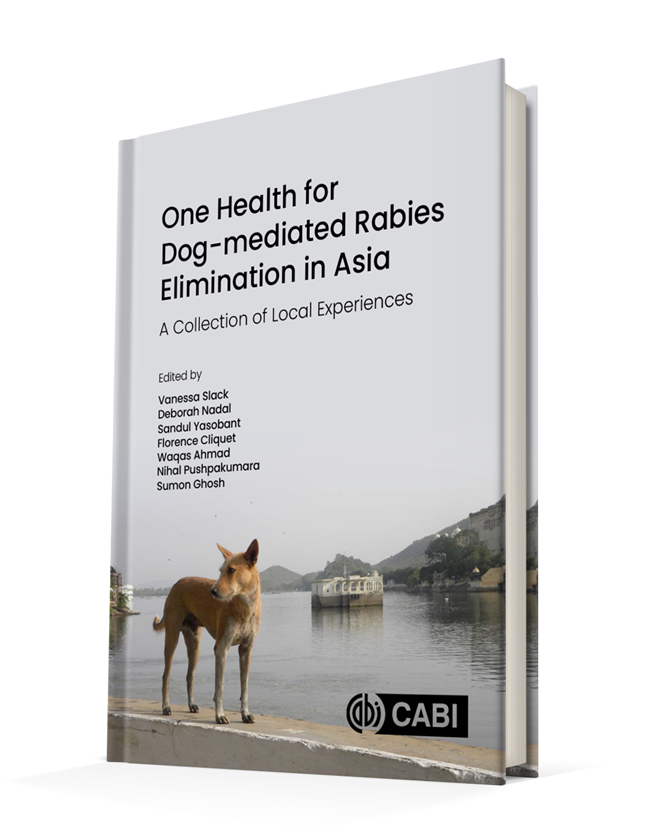Originally having begun development in 2019, the book One Health for Dog Mediated Rabies Elimination in Asia, co-edited by Sumon Ghosh, a PhD student in the University of Tennessee, Knoxville’s College of Education, Health and Human Sciences Department of Public Health, is set to be published in July 2023.
The book is written by a multidisciplinary group of scholars and rabies control specialists. It contains a collection of experiences and observations on the challenges and successes along the path to rabies control and prevention in Asia.
specialists. It contains a collection of experiences and observations on the challenges and successes along the path to rabies control and prevention in Asia.
According to Ghosh and his fellow scholars, an effective human rabies vaccine has existed since 1885, although rabies continues to kill an estimated 59,000 people annually. Most of these human deaths occur in rural, impoverished communities in Asia and Africa, far from medical and veterinary services. Furthermore, 40% of deaths occur among children. In addition to humans, millions of dogs and other animals die from rabies.
The One Health approach is defined by the United States Department of Agriculture as “a collaborative, multisectoral, and transdisciplinary approach – working at the local, regional, national, and global levels – with the goal of achieving optimal health outcomes recognizing the interconnection between people, animals, plants, and their shared environment.”
By applying this approach through focusing on humans and dogs, Ghosh and his colleagues are working toward the goal of eliminating dog-mediated human rabies deaths worldwide.
“There is no simple solution to eliminate dog rabies from endemic areas or achieve zero human rabies deaths,” Ghosh said. “Every aspect of rabies control carries a set of challenges to overcome to be successful. We must emphasize the need for sustained mass dog vaccination, continuous communication and open information sharing to learn from one another’s successes.”
According to Ghosh, “One Health for Dog Mediated Rabies Elimination in Asia” is the first book that provides insights into current development, progress and challenges regarding the elimination of dog-mediated rabies in Asia from rabies experts worldwide.
“With perspectives from Asian countries and a wide range of sectors/disciplines, this book could be an invaluable resource for rabies practitioners, scholars and those working in the broader fields of disease control and cross-sectoral,” Ghosh said.
As a trained veterinarian with expertise in mass dog vaccination strategy, Ghosh contributed to sections of the book related to Mass Dog Vaccination, which can be found across multiple chapters. Ghosh’s responsibilities included contracting for and evaluating chapters, accepting or rejecting them, rewriting, researching and fact-checking.
“My love of health science began in early childhood, eagerly observing my parents, both health professionals, interacting with patients in my village suffering from diseases including tuberculosis, cholera, salmonellosis, malaria, rabies and influenza,” Ghosh said. “Growing up with a profound passion for medical science has given me a charitable disposition toward man and all animals.”
Ghosh said that understanding the interconnection between humans, animals and our environment becomes more significant when considering the impact of an increasing human population.
“Vaccinated dogs safeguard the communities in which they reside from the threat of rabies, and the disease can be eliminated with long-term vaccination,” Ghosh said. “We have examples of this happening, even in places where it was once considered impossible.”
Ghosh’s contribution to the public’s understanding of the importance of rabies elimination won’t end with the publication of “One Health for Dog Mediated Rabies Elimination in Asia,” however.
Ghosh has contributed to Bangladesh’s National Rabies Elimination Program with his other colleagues since 2011. Ghosh said the program path wasn’t always smooth, but he was instrumental in driving the program forward by implementing strategies including modern treatment for dog bites, mass dog vaccination and dog population management.
“My story of rabies control is of passion and responsibility,” Ghosh said. “I believe I will continue to contribute to and engage with these activities, particularly through advocacy, communication and social mobilization, and thus will assist the policymaker in taking proper intervention as an infectious diseases advocate.”
Through its eight departments and 12 centers, the UT Knoxville College of Education, Health, and Human Sciences enhances the quality of life for all through research, outreach, and practice. Find out more at cehhs.utk.edu
